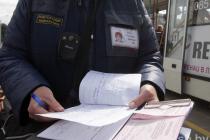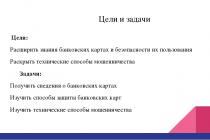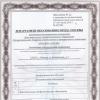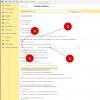Transport tax Russians have been paying for almost a century, while the quality of roads in the country remains at a low level, especially in regions remote from the center of the country, and, in addition, the government introduced fuel excise taxes, which made fuel more expensive for consumers, although in many countries the cost of gasoline and diesel fuel is already included in the transport fee. This double taxation raises questions among many, as well as a desire to reduce or avoid paying taxes. Some categories of citizens are exempt from the duty, others can reduce the rate. How to avoid paying car tax and do it legally, read this article.
To understand how to reduce or not pay transport tax at all, you need to understand when the obligation to pay tax arises, what the amount depends on and how the duty is calculated. Firstly, if a citizen has registered his car with the traffic police, i.e. registered the car, then the owner is obliged to pay a fee. Therefore, it does not matter at all whether the car actually exists or whether it burned out, drowned, whether the equipment is in working order, whether it has been disassembled into parts, whether it is in a garage or is constantly operated by the owner, “sold by general power of attorney”/rented out, whether there is insurance, technical inspection, etc. .d. In all listed (and unlisted cases), the tax is charged to the person in whose name the car is registered.
Secondly, the payment amount, according to Russian legislation, is regulated at the regional level, so even in neighboring regions of the federation the rate varies. The amount of duty in our country is determined based on several criteria:
- engine power;
- cost of the vehicle;
- places of registration of equipment;
- preferential driver category (if there is a benefit).
From this follows the scheme for calculating transport tax. You can use an online calculator or calculate everything yourself according to the following scheme:
- Determine the tax base based on the number of horsepower or cubic meters indicated in the vehicle registration certificate.
- Find the transport tax rate in the region where the car is registered on the website of the Federal Tax Service.
- Calculate taxable period. If the car was purchased at the beginning of July, then the owner will only pay the fee for six months.
- Check the availability of confirmed benefits that reduce the amount of tax.
- Apply an increasing factor if the car cost three million or more, and corresponds to a model included in the list of the Ministry of Industry and Trade.
- The tax amount is equal to the product of the tax rate by the number of horsepower, the increasing coefficient and the period of ownership of the vehicle, expressed in full years.
Payment of taxes is mandatory for any citizen of the Russian Federation. In case of delay or non-payment, the Federal Tax Service will send the taxpayer a notice demanding payment of the tax as soon as possible. In six months, the fate of the defaulter will be decided by the court, and then by the bailiffs, who will claim the entire amount of the debt with the daily penalties and fines accrued on it.
When do you not have to pay duty?
- The car is not registered with the traffic police or removed from it, and the reason why this happened is not important and does not affect the fact that the citizen does not pay transport tax.
- If the taxpayer owns a car that was stolen or stolen (upon providing the appropriate document from law enforcement agencies), the fee is not charged from the month following the theft.
- When the PTS on the basis of which the tax is calculated contains information that does not correspond to reality. In such a situation, the owner can challenge the need to pay the fee by presenting evidence to the Federal Tax Service or prove the unnecessaryness of the payment through the court. Separately, we note that you should not deliberately enter incorrect data into the document: sooner or later the lie will be revealed, which will lead to a criminal case and a fine.
- If a Russian is an individual entrepreneur and uses rented transport for work or his employees drive personal transport, registered to them.
- If the car owner has a federal or regional benefit, according to which the owner of the vehicle is exempt from paying the fee.
Who is exempt from paying the transport tax?
Category 1. Preferential categories of the population. Federal legislation includes disabled people of groups I and II; parents with many children, who have children of three or more, and citizens with disabilities are included in the list. military service, and veterans of the Great Patriotic War, and liquidators of accidents at nuclear power plants (in Chernobyl, at Mayak), etc.
In the subjects of the federation, the list of categories of beneficiaries varies: for example, in Kemerovo region in relation to one passenger vehicle with an engine power of up to 250 hp. Old age pensioners, disabled people of the third group, various public organizations are exempt from paying the duty; in Yaroslavl - low-income families With big amount children; in Karelia, to obtain an exemption, you must be a social or military pensioner, and in Tomsk, you must be the owner of a pneumatic or tracked vehicle. To find out whether the owner of the car is among the beneficiaries, you need to select on the website of the Federal Tax Service desired region and the city.

Category 2. Owners of the following vehicles (their full list presented in article 358 Tax Code RF (part 2)) – rowing boats; “passenger cars” intended for disabled people with an engine up to 100 hp; sea or river vessels used for fishing; registered agricultural machinery (tractors, cattle and milk tankers, etc.); equipment involved in road repairs.
Category 4. Owners of heavy-duty equipment: tax exemption is valid from 2015 to 2019. The benefit applies to both individuals and organizations. It covers vehicles weighing 12 tons and heavier that are included in the tax register of equipment that causes damage to roads, while the owners of such vehicles pay approved contributions, the amount of which for the tax period must be greater than the accrued tax.
Category 5. A foreigner is the owner of a car that has license plates from another country (i.e. the car is not registered in Russia). This situation is possible for those residents of our state who have a residence permit or other citizenship.
Category 7. The owner of a leased vehicle (the fee is paid by the leasing company, which owns the equipment during the term of the contract). However, it is worth remembering that the transport tax is most likely already included in the amount of each leasing payment, and with interest.
Category 8. A citizen using a car by proxy. Exception: if the tax office is notified of the fact of the transfer and the corresponding permission, then the obligation to pay the fee is transferred to the trustee.
If a car owner falls into the category of beneficiaries, then you need to fill out an application for tax exemption and take it to the tax office at the place of registration of the owner. You must notify about the availability of the benefit before the first of April next year.
Video - Who has benefits when paying transport tax?
If you register a car with the traffic police of a neighboring region...
If you register a car with the traffic police of a neighboring region, where the tax rate is lower, then in most cases you will not be able to save money. As we wrote above, the amount of the transport fee depends on the place of registration of the owner. Today, the highest taxes are in the two capitals of Russia: for a car registered in Moscow with a 150 hp engine. a resident of the region will pay 35 rubles for 1 force, in Yaroslavl - 28, in the Kemerovo region - 14, and Chukotka Autonomous Okrug– 7 rubles.
But, despite the fact that according to current laws it is allowed to register a car in any region of Russia, without being tied to the place of residence of the owner, this information will still be sent to the Federal Tax Service at the place of registration of the owner, therefore the tax is calculated from the rate that is established in the region of official residence of the car owner. Consequently, this option is suitable only for Russians whose relatives live in a city that is attractive in terms of tax levels, but do not forget that in the event of the death of the “dummy” owner, the rights to the car pass to his heirs.
If the car is expensive...
If the car is expensive, then you can try to reduce the duty. With the so-called “luxury” tax, if a citizen paid more than 3 million rubles for a car, when calculating the fee, the Federal Tax Service takes into account not only the above criteria, but also the make and year of manufacture of the car, applying an increase factor to the regular rate. This practice was established in 2015. The Ministry of Industry and Trade annually on March 1 publishes a list of expensive vehicles for which the tax levy will be higher.
The list includes 909 models; a year ago it included 708 cars. For example, the fee for a Ford Explorer Sport - 2015 (engine power - 345 horsepower) together with the increasing coefficient will amount to almost 57 thousand rubles in the capital. For a three-year-old BMW M6 convertible, the tax rate has doubled, and it will cost the owner 150,000 rubles. Rolls-Royce Dawn (2014) has an increasing factor of 3, and therefore the duty on this car is one of the highest - 257,000.
Table 1. Increasing coefficients for expensive cars
| Average cost of a passenger car | Year of manufacture of the car | |||||
|---|---|---|---|---|---|---|
| 02.03.2017 | 01.02.2017 | no more than 1 year | no more than 5 | no more than 10 | no more than 20 | |
| from 3 million to 5 million rubles inclusive | 1.1 | 1.3 | 1.5 | - | - | - |
| from 5 million to 10 million rubles inclusive | - | - | - | 2 | - | - |
| from 10 million to 15 million rubles inclusive | - | - | - | - | 3 | - |
| from 15 million rubles | - | - | - | - | - | 3 |
This list does not take into account technical condition car and its contract price, officials sometimes even include non-existent models in the list (for example, the five-year-old Audi PC6, although this model has not been produced since 2010). If the car costs less than three million or has been involved in a serious accident, but is included in the list, the tax will still be calculated with an increased coefficient.

Experts predict an increase in the coefficients listed in the law, which is associated with stable inflation, and therefore an increase in the cost of cars, therefore, if the cost of a car exceeds three million rubles, you can use the following ways to reduce the tax on “luxury”:
- Before purchasing a car, check whether it is on the ministerial list(the model being purchased may not even be there, despite the high cost, but, nevertheless, on March 1 of next year, when the ministry publishes a new list, the brand may already appear there);
- If you choose a car a year older, it may not have such a powerful engine. If, after all, a luxury car is your dream, you need to calculate the duty in advance and plan it in the family’s annual budget;
- Register the vehicle in the name of a relative who is a beneficiary. But, if the engine power exceeds 100-150 hp. (this is the threshold for almost all preferential categories of citizens in various regions), the tax will be charged on each extra cube or horsepower above the specified limit.
How else can you reduce the amount of transport tax?
If a citizen’s car is not included in the list of luxury cars (according to the Ministry of Industry and Trade), there are several ways to reduce the state duty by reducing, firstly, engine power, since the tax rate in the regions depends on this value. When finding out the official power of a car engine in the year the car was manufactured, you need to add up the prime numbers indicated on the unit and divide the resulting amount by 8.5. To determine engine parameters in kilowatts, the number of hp. you need to either divide by 0.735 or multiply by 1.35962.
- Check the numbers in accounting documents – suddenly there will be significant inaccuracies: this happens quite often. The method can be applied if 1) the employees of the institution that issued the passport made a mistake in the papers, or 2) the engine power has changed during the operational period. In the first case, you need to make an official request to the distributor (dealer) or manufacturer of the equipment to carry out a special diagnostic procedure or contact an expert institution authorized to conduct such studies (if the traffic police resists and does not accept the answer from the official manufacturer of the equipment). In the second case, you should immediately contact independent specialists authorized to conduct such research. When assessing the condition of the car, experts will identify and indicate not only the actual engine power, but also the level of wear and the expected period of subsequent operation. After the calculations have been carried out, the expert organization will prepare a conclusion, which will indicate the stages and algorithm of the engine diagnostics carried out, calculation formulas, and additional comments from a specialist; final conclusions with a description of the numerical data obtained during the analysis. Having received the conclusion, it must be submitted to the department responsible for vehicle registration, and after verification, make changes to the title and service book, then control the transfer of data to the tax office. Litigation in this case there are no practical ones.
- Structurally change the engine— reduce the power of the internal combustion engine, modify the electronic control. Of course, in order to carry out such an operation, you must first request permission from the traffic police department, and then contact a service station that has a license to carry out such procedures and issue conclusions on making technical changes to the car.
- Replace the motor with a less powerful one. Of course, you will first have to buy a new one from official manufacturers (dealers), and the engine must have all the necessary documentation for registration. Therefore, when purchasing a unit, it is worth taking with you a knowledgeable person who can evaluate the authenticity of the manufacturer’s certificate, the compliance of the new engine with the model line of the car/the availability of official permission from the manufacturer to replace an engine of a different brand, and compliance with environmental legislation during operation. Considering all these difficulties, after the official engine replacement and reduction tax burden some motorists install the same engines, because anyway, when stopping a vehicle, traffic police officers do not check the compliance of the engine serial numbers and related documentation, and, moreover, do not check with the tax authorities. The new engine remains in stock, and if the need arises again to present the car to the registration department of the traffic police, the engine is quickly installed back.
- Depower the engine, that is, technically modify it according to the factory design. Please note that such an operation is carried out only with the official permission of the State Traffic Inspectorate and in car services certified to carry out this type of activity.
Secondly, travel along city roads by transit, that is, put transit numbers on the car, deregistering it with the local traffic police. However, this method has many disadvantages. The driver receives transit numbers for a period of 5 to 20 days, they need to be renewed. To do this, you need to make a corresponding request to the head of the traffic police department. But extending the validity of “transit cards” is not an obligation, but the right of the manager, therefore, if there are no compelling reasons, the citizen will most likely be denied an extension, and the lack of numbers threatens with administrative penalties.

On the Internet you can find several more common tips for reducing state duty. Let's look at them.
If the inspectorate has not sent a notification to pay the tax...
If the inspectorate has not sent a notification to pay the tax, then it is still better to pay it by finding out the amount of the transport tax in person or by sending a written request to the inspection. Firstly, it happens that the notice is sent to the former owner, or to the wrong person, or the document is simply thrown into a neighbor's box. Secondly, it is worth remembering that if a taxpayer’s personal account is open on the Federal Tax Service website, then he will not receive paper notifications.
The Federal Tax Service Inspectorate very rarely “forgets” about taxpayers, and if they have forgotten, then since 2015 individuals must themselves report to tax service about their movable or immovable property, and therefore, paying taxes on time is also in the interests of the owner. Therefore, if a citizen does not receive a tax notice, while his car has been registered for more than a year, this is a reason to contact the tax office to find out whether the owner is a debtor. Subsequently, a situation may arise that the owner of the car will be sent a tax notice for several years with penalties and fines, and arbitrage practice on such issues is controversial. Of course, you can wait until the deadline expires. limitation period for tax collection (three years), but even in this situation, before becoming a law-abiding payer, you will have to pay a transport fee for three years.

Sample of a completed TN declaration (title page)

Sample of a completed declaration on TN (section 1)

Sample of a completed declaration on TN (section 2)
If the car belongs to a minor...
If the car belongs to a minor, then the tax will be paid by his legal representatives (parents, adoptive parents, guardians, trustees) after registering the vehicle with the traffic police.

This explanation is given in letters of the Ministry of Finance of Russia dated May 18, 2015 No. 03-05-06-01/28396, dated August 28, 2008 No. 03-05-06-01/27. However, the law does not limit the possibility of re-registering a car to a minor. A citizen will be able to evade the tax only if the child belongs to a preferential category exempt from paying tax, for example, is a disabled person of the first or second group.
If you sell a car, then...
If you sell a car, then tax will be charged to the previous owner until new owner does not re-register the car in his name or the previous one does not stop registering in his name. How to do it? Ten days after the sale of the car, the previous owner needs to come to the traffic police with an agreement on the transfer of ownership and write a statement. The sold car is no longer registered with him, and new data is transferred to the Federal Tax Service.
In conclusion, we note that in the automotive sector, legislation is under development and therefore constantly changing. For example, soon deputies are proposing to add to the above tax calculation criteria also taking into account the environmental class of the car. Since October 2016, tax control rules have been in effect, according to which legislators assigned responsibility for actions that resulted in non-payment of duties, ignorance of new rules, or transmission of incorrect information about the place of residence to the owner of the car. That's why the best option For any car owner, it is to be interested in changes in this legal area and, in the event of a controversial or conflict situation, contact a tax consultant.
Transport tax has existed in our country for about a hundred years, and every car owner is required to pay it. But many believe that the money transferred to the treasury is spent on other needs, and therefore they try to find ways to evade tax payments.
The regulations governing the payment of transport tax clearly define who is obliged to do this and who is exempt from payments. But before we consider this topic in more detail, let’s focus on general points when it is possible to prove the legality of non-payment of technical tax:
- Tax officials often make mistakes when drawing up notifications and sending lawsuits. Failure to comply with the rules makes these papers invalid, as well as the requirements that are specified here;
- the payer is not required to prove that he received a notice or other document. This must be done by the plaintiff. In the situation under consideration, this will be tax;
- Payment may not be made if the tax assessment papers are not prepared in the appropriate format. They have no legal force.
Anyone who is thinking about how to legally avoid paying transport tax should know these points.
Important! The car owner must pay the TN after receiving the relevant notification. Art. speaks about this. 52 and art. 363 Tax Code of the Russian Federation. The document is sent by registered mail. If some other paper is received instead of an official notification, the person has the legal right not to take any action.
If all documents were completed in in the prescribed manner, and the citizen to whose name they were sent did not fulfill the payment in fixed time, in a couple of months he will receive a second notification demanding repayment of the debt. With absence cash receipts Tax officials can file a lawsuit. They have six months to do this. By court order the debt will be collected without fail.
Who should pay transport tax
The responsibility to pay for the TN lies with the person who is officially the owner of a particular vehicle. And it happens that the right to drive and dispose of vehicles has been officially transferred to another person, but notifications from the tax office continue to arrive to the first owner.
Transport tax is paid not only by individuals, but also by entrepreneurs and LLCs Important! The tax office is not always notified of a change in vehicle ownership, for example, if the car was sold by proxy. Therefore, it makes sense to go to the territorial inspection department and notify the employees about the new owner of the car..When planning a trip to the tax office, you need to fill out an application. It is written in free form, but must contain the following information:
- information about the first owner of the vehicle;
- information about the car itself;
- information about the new owner;
- the date when ownership of the car was transferred to another person;
- details of the power of attorney confirming the fact of change of owner;
- list of rights vested in the new owner.
Based on the submitted application, the inspection will send notifications to the new owner, and the first owner will free himself from unnecessary hassle.
Every year, owners of road, air or sea transport must pay a tax to the state. How it is calculated, what amount it is, and whether there are benefits to reduce its payment, we will look into this article.
Transport tax: concept
All types of taxes are prescribed in the Tax Code of the Russian Federation. A whole separate chapter is devoted to transport mode. It states that each subject of the Russian Federation can independently decide on fluctuations in rates and interest.
Each individual subject of the Russian Federation has a legislative body that determines:
- tax percentage;
- date of payment;
- the procedure for its introduction;
- preferential categories transport and citizens.
Transport tax is calculated from the first day of registration of the purchased vehicle. The Tax Code provides a list of objects that are and are not subject to taxes.
Official rates and benefits can be found on the Federal Tax Service website.
General provisions
Transport tax did not always exist. It came into effect in 2013. The state spends huge sums on road repairs and environmental protection, so these wastes are to some extent assigned to vehicle owners.
The owner of the car compensates for the damage caused environment through:
- Transport tax.
- Excise tax on gasoline.
- Excise tax on automobile production.
- Tolls.
All cash go to the budgets of the country's constituent entities. Chapter 28 of the Tax Code of the Russian Federation prescribes the procedure, amount and deadline for paying taxes. For the largest taxpayers there is a separate procedure regulated by Article 363.1 of the Tax Code).
Taxpayers
Every person who has real estate, in particular the vehicle, is a taxpayer.
If you are an individual, you must pay a certain amount that the tax office will charge you. To make a calculation, you need to know information about the vehicle. They, in turn, are provided by the bodies that carry out state registration transport.
If the payer is a legal entity, then it must independently transfer the amount of the advance payment and tax.
 If there are no special instructions, the tax amount is calculated by multiplying tax base and tax rate. The result is summarized every tax period.
If there are no special instructions, the tax amount is calculated by multiplying tax base and tax rate. The result is summarized every tax period.
The amount for a legal entity is calculated slightly differently. Throughout the tax period it is paid advance payment. Next, the advance payment is deducted from the amount received.
Law firms pay cash at the end of each reporting period. The final figure is calculated as ¼ of the tax base multiplied by the tax rate.
Object of taxation
You will need to pay tax if you own the following vehicles:
- passenger cars;
- buses;
- tractors;
- air transport: airplanes and helicopters;
- water transport: yachts, boats, sailing ships, jet skis, motor boats, etc.;
- tracked transport;
- motor vehicles;
- snowmobiles;
- non-propelled vessels.
According to Article 358 of the Tax Code of the Russian Federation, it is allowed not to pay tax on such objects as:
- Boats with power up to 5 horsepower or with oars.
- Fishing and river ships.
- Specialized vehicles for driving by disabled people (with an engine up to 100 horsepower).
- Vessels for transporting passengers and cargo vessels (river, sea, air) belonging to state property.
- Tractors and combines.
- Ships registered in the international registry.
- Air transport used for medical purposes.
- State transport registered in the region where military service is carried out.
The tax base depends on:
- what is the power of the vehicle;
- what is the statistical thrust of air transport;
- what is the gross tonnage of water transport.
What affects the amount of tax?
The tax rate is determined by law in each individual subject of the Russian Federation. It depends on:
- Engine horsepower.
- The volume of the vessel's enclosed spaces.
- Transport categories.
- The age of the vehicle and the duration of its operation.
If the cost of the car is more than 3 million rubles, then an increasing factor is used.
The following types of coefficients are distinguished:
- k 1, if the cost of the car is 3–5 million and the age is 2–3 years;
- k3, if the cost of the car is 3–5 million and its age is 1–2 years;
- k5, if the cost of the car is 3–5 million and the age is up to 1 year;
- k 2, if the cost of the car is 5–10 million and its age is up to 5 years;
- k 3, if the cost of the car is 10–15 million, and the age of the car is up to 10 years;
- k 3, if the cost of the car is from 15 million, and the age of the car is up to 20 years.
If the tax office issued incorrect amount, then it can be challenged:
- The cost is paid according to the receipt.
- An objection form is filled out.
- Documents about benefits or that the car has been deregistered and others are provided.
If a person has moved to another city, then he needs to apply and register with the MREO at his place of residence. There is no need to contact the tax service yourself; the data will be transferred automatically.
If the fact of removal and re-registration was carried out in one day, you will still have to pay for a full month of operation.
Why do we pay transport tax?
When buying a car, you need to be prepared for constant costs: gasoline, operation, tire replacement, and so on. Therefore, many do not agree with paying transport tax as well.
The owner of the car pays for the fact that it harms the environment and wears out the road surface.
For several years now there has been talk of abolishing the transport tax. But then the state budget will remain in a big minus, and as an alternative, prices for gasoline excise duty may increase. In any case, if a person allows himself to buy a car, he must be prepared to pay a fee for it.
Perhaps in the future the approach to calculating tax will change: horsepower will not be taken into account, but only engine volume, the age of the car and its impact on the environment. But for now everything remains the same, so do not forget to make payments on time to avoid debt.
Today you can use one of the legal grounds and not pay taxes on your car. How to avoid paying an annual fee for your four-wheeled iron “horse”?
There is a certain sense in charging a transport tax: by contributing considerable sums to the budget, motorists supposedly compensate for the wear and tear of the road surface. At first glance, the calculation may seem fair, but the quality of roads across the country, despite annual revenues to the treasury, is not improving. Highways, highways and city roads are still in poor condition. Besides, Russian government Fuel excise taxes have been introduced, which already include transport taxes. Hence, the question of whether it is necessary to pay car tax twice is quite logical.
What does the Tax Code of the Russian Federation say?
Every citizen who has purchased a new or used car is annually required to pay local budget collection. Taxation periods are counted from the moment the vehicle is registered with the traffic police. To understand whether you need to pay tax on a car, you should read Chapter 28 of the Tax Code of the Russian Federation (Articles 356-363). It follows from the Tax Code that every owner of a vehicle is required to pay annual fees, regardless of whether his car is in good working order, whether it actually exists, whether it has been disassembled for parts, whether it is constantly used by the owner or is parked in a garage.
How to calculate annual payment
The amount of duty in Russia depends on several criteria:
- car engine power;
- market value of the car;
- the region in which the vehicle is registered;
- the presence or absence of benefits for the taxpayer.
The payment amount is set by municipalities, so even in neighboring regions the tax amount for the same car may differ. To find out how much tax you pay on a car, you need to:
- determine the tax base based on the number of horsepower or engine volume ( this information indicated on the vehicle certificate);
- apply the appropriate rate to calculate the payment (it can be found on the website of the Federal Tax Service of the Russian Federation, indicating the region of registration of the car);
- determine the tax period (if the vehicle has not been owned by the taxpayer since the beginning of the reporting year, then the duty is calculated based on the number of months of direct ownership);
- apply a benefit that reduces the amount of the fee, or increases the coefficient if the car belongs to the luxury category and costs more than three million rubles.
To get the exact amount tax collection, it is necessary to multiply the tax rate in force in the region by the engine power, expressed in horsepower. The result is then multiplied by the increasing factor and the period of ownership of the car.
Every citizen of the Russian Federation must pay car tax. This fee is mandatory for all Russians, and in case of late or non-payment, the taxpayer will be assessed fines and penalties.
Grounds for non-payment
There are several legal ways don't pay taxes on cars. As a rule, this applies to citizens who, for various reasons, were unable to register a vehicle with the MREO or deregister it. A citizen has the right not to pay the annual fee even if his car is stolen or stolen, and the fact of the theft itself is recorded by law enforcement agencies. After the theft is reported, the tax ceases to be calculated.
You should also think about how to avoid paying taxes on a car if the vehicle’s passport contains incorrect information. In this situation, the owner of the car should report the discrepancy to the tax office at the place of residence or file a corresponding claim in court.
Russians who are engaged in private entrepreneurial activity, the state provided a number of preferences, including in the field of taxation. For example, individual entrepreneurs who use personal cars for work are exempt from paying transport tax.
Preferential category of taxpayers
In our country, we take care of socially vulnerable segments of the population. For example, large families, WWII veterans, Heroes of the USSR and the Russian Federation, disabled people do not pay car tax, and other categories of citizens are given a significant discount on the annual payment. These include:
- parents or legal representatives of a disabled child;
- family members of military personnel who died in the line of duty;
- persons of disabled age;
- citizens injured as a result of the Chernobyl accident.
In the regions, the list of beneficiaries may be supplemented with other categories. At the same time, local authorities usually establish a number of conditions for those who may not pay taxes on cars, as, for example, in the Kemerovo region. Here, pensioners and disabled people of the third group are exempt from this duty, but on the condition that the car is the only one owned and its engine power does not exceed 250 hp. With.
Which vehicles are not subject to tax?
Article 358 of the Tax Code of the Russian Federation presents types of equipment for which you do not need to pay an annual fee. Among them are rowing boats, sea and river fishing vessels. There is also no need to pay an annual fee for persons with disabilities physical capabilities health. Do disabled people pay car tax? An affirmative answer can only be given if we are talking about small cars with a power of no more than 100 hp. With. Car owners who transport disabled people are also exempt from paying the duty.

One way to save on annual taxes is to modify the engine design, reducing power and modifying the car's electronic controls. To carry out such technical manipulation, permission from the traffic police will be required. As soon as it is received, you can contact the service station. However, it must be taken into account that the cost of such an operation is several tens of thousands of rubles, so changing the engine power is not always a practical solution.
If the engine power of the car does not exceed 70 horsepower, you do not need to pay tax on it. The information specified in the PTS is taken into account. The owner of a car that is registered to a company under a leasing agreement is also exempt from paying the annual fee. However, in this case, transport tax is often included in lease payments along with interest.
Tax is not paid on agricultural vehicles, including milk tankers, tractors, livestock carriers, and equipment involved in road repair work. Since 2015, heavy vehicles have been added to this list, regardless of who their owner is - a legal entity or an individual. We are talking about machines weighing 12 tons or more. Such vehicles are included in a specialized register as equipment that causes damage. highways, so their owners pay fixed amounts, exceeding the standard transport tax on cars.
Where to pay and how to save
As noted, the size of the transport fee depends on the region of residence of the owner. Today, Muscovites pay the highest taxes - the average rate is 35 rubles. In the Yaroslavl region, the same figure is 28 rubles, in Voronezh – 20 rubles, in Kemerovo – 14 rubles, and in Chukotka – 7 rubles.
Due to the difference in tax rates, some car owners use a trick and register their car with the traffic police not in the region where they permanently reside, but in the region where the tax rate is lower. However, this method of saving is not always effective.

Current legislation does not prohibit citizens from registering vehicles in any region of Russia, without reference to place of residence. Moreover, data about the new owner is still sent to the Federal Tax Service at the place of permanent registration of the latter. Based on this, the tax is calculated at the rate established in the region of residence of the owner, and not the registration of the car.
Luxury car: how to avoid taxes
Owners of expensive cars can also attempt to reduce the amount of payment to the state treasury. The luxury car tax is calculated using a different formula, using a multiplying factor. This category includes vehicles whose cost exceeds 3 million rubles.
When calculating the duty, tax authorities take into account the make and year of manufacture of the car. Since 2015, the Ministry of Industry and Trade of the Russian Federation has been publishing a list of expensive cars for which higher tax rates. There are several hundred models in this list. For example, one of them is the Ford Explorer Sport (2016) with an engine power of 345 hp. With. The annual tax for such a car will be about 55-60 thousand rubles, but this is not the limit. For some models such as BMW M6, Rolls-Royce Dawn or Bentley Flying Spur, a maximum coefficient is applied, so the duty on such cars can reach 200-300 thousand rubles.
When calculating the duty, the technical condition of the car and its price under a purchase and sale agreement between private individuals are not taken into account. If the car was sold for less or was involved in a serious accident, but is present on the list, the tax on it is still calculated with an increased coefficient. Sometimes officials include models in this list that have not been produced for a long time.
Given the stability of inflation, experts predict an inevitable increase in the cost of luxury vehicles, and with them the operating rates. To reduce the tax amount on expensive cars, buyers are advised to use the following methods:
- Choose a model that is not on the list published by the ministry. Despite the absence of this car in the ministerial list, this does not mean that by the time of the next publication the specified model will not appear there.
- Buy a car that is older than the model you like, or in a different configuration, with a less powerful engine.
- When registering a car with the traffic police, the owner must indicate a relative who belongs to a preferential category of taxpayers. At the same time, we must not forget that the preference applies to cars with an engine power of no more than 100-150 hp. With. – this is the average threshold for beneficiaries in Russian regions. The duty will be calculated for each horsepower over the limit.
Before buying a luxury car, it is advisable to calculate the tax amount in advance and include it in the family’s annual budget.
Calculation of annual duty in case of car sale
When the owner of a vehicle changes, the vehicle is re-registered. As long as the previous owner is listed in the traffic police database as the owner of the sold car, transport tax will be charged in his name. If the new owner of the car is in no hurry to go through the registration procedure, the previous owner can protect himself from unnecessary expenses. To no longer receive payments from tax office, you need to come to the traffic police yourself with a purchase and sale agreement and write an application on the form given by the inspector. The traffic police will transmit information about the change of owner to the Federal Tax Service. After this, the car will no longer be registered with the citizen.
Car sales tax: is it necessary to pay?
Contributions must be made not only for the objects of the purchase and sale agreement, but also for property received as a gift, inheritance or as a lottery win. Do I need to pay tax on car sales? Yes, but not in all cases.
Regardless of the reasons for which the car became property, the owner must have documents confirming the legality of the acquisition and a certificate of the estimated value of the car. By the way, the choice of tax rate depends on the last paper.
Before calculating the amount of duty, you should make sure whether you need to pay tax on the sale of a car in a particular case. If, nevertheless, the car falls under tax requirements, it is advisable for the seller to take care of filling out the 3-NDFL declaration in advance. The question of whether to pay tax on a sold car should not arise if the car was owned by the seller for less than three years. At the same time, even the car that was purchased using loan funds is subject to tax.
As a rule, a transaction between two citizens (seller and buyer) is carried out at a private level. Despite the absence of a fiscal receipt, the seller is required to draw up a declaration and pay income tax in the amount of 13% of the cost movable property, exceeding 250 thousand rubles. At the same time, there are several conditions under which a citizen is exempt from paying the fee. You need to find out about them in advance so as not to break the law and sell your car correctly.
What taxes should I pay if, for example, the seller has owned the car for more than three years? None. A car that is sold at a price lower than the original cost, that is, in the absence of profit from the transaction, is exempt from taxation. When selling a car, you have to pay tax only when its value exceeds 250 thousand rubles. The presence of at least one of the specified conditions is sufficient for the former owner to receive a tax benefit.
How to calculate correctly
The duty is paid if the cost of the car exceeds 250 thousand rubles. If the price of the car is lower, it applies zero rate. Today, two methods are used to calculate tax when selling a car:
- The first one is costly. It is assumed that price and expenses are taken into account when purchasing. From initial cost the car at which its current owner purchased it is taken away from the asking price. The resulting difference is subject to income tax at the rate of 13%.
- The second is the subtraction method. If the primary sales contract is lost, 250 thousand are subtracted from the price set by the seller and the difference is multiplied by 13%. The amount received is the size income tax from car sales.
Let us give an example of duty calculation for both schemes. The car was purchased from a private person in 2016 for 500 thousand rubles. A year and a half later, the owner put it up for sale for 570 thousand rubles. The difference in cost is 70 thousand rubles. Multiplying it by 0.13, you get 9100 rubles. This amount must be paid after the transaction as income tax.
Using the subtraction method to calculate tax, the amount will be 41,600 rubles. ((570 thousand – 250 thousand) x 13%). The expensive method is more profitable, but it is not universal. It can only be used once per calendar year, so this option is not suitable for those who resell cars.
Taxation of income from vehicle rental
The rate for calculating the duty on car rental (every owner who plans to make money by providing their vehicle for use by others should know what taxes to pay) depends on the terms of the rental agreement. For individual entrepreneurs the amount of tax is determined by the current taxation system. For example, for individual entrepreneurs who use a simplified tax regime, the rate is 6%. For individuals who receive income from leasing property for temporary use to other persons, the duty is calculated at a standard rate of 13%.
Renting a vehicle can be with or without a crew. In the first case, the obligation to maintenance of the car falls solely on the lessor, in the second - on the lessee. The amount of tax does not depend on the type of lease and is paid according to the scheme described above.
Annual tax payment schedule
When do you need to pay car tax? This question concerns most taxpayers. In order not to violate tax discipline, payment of the transport duty must be made before December 1 of the year following the reporting year.
For legal entities there is no clear rule until when to pay car tax. All organizations pay fees according to an individual schedule, in different periods. This is explained by the fact that for companies the deadlines are set by municipalities, based on the field of activity. At the same time, no organization has the right to pay taxes on cars later than February 1 of the year following the reporting year.
Reading time: 6 minutes
Taxes have always been a headache for citizens and companies in any country. We especially dislike those that seem unreasonable or too high. When the government planned to replace the transport tax with a fuel excise tax in 2009, many breathed a sigh of relief. But a miracle did not happen - the excise tax was introduced, but the TN remained. Some car owners have become interested in how to avoid paying vehicle tax legally. As it turns out, there are options.
About transport tax
This is about state tax levied on vehicle owners. According to Art. 358 of the Tax Code of the Russian Federation, objects for taxation are cars, buses, motorcycles, and other self-propelled machines and pneumatic and tracked mechanisms. The list includes aircraft and sea vessels, including non-propelled ones.
In Russia, TN is classified as regional fees– the size, terms, payment procedure, reporting and benefits are established by the local government.
Rates vary depending on the power of the power plant and can vary by no more than 10 times. Subjects determine tax rates by vehicle category.
Will it be possible to avoid paying TN legally?
Now let's figure out whether it is possible not to pay transport tax. If it is accrued and a notification is received, you will still have to fulfill the debt to the state, as well as pay a fine for non-payment or a late fee, although not always. There is a chance not to pay it if:
- The payment is overdue due to the fault of Russian Post. You will have to challenge the fine in court and prove that the notification did not arrive on time.
- The tax is assessed on a stolen or sold car. First you need to contact the traffic police with a request to make changes to the database, and then to the tax authorities for recalculation.
- The owner of the vehicle learned about the right to a benefit that he had not previously used. It is necessary to submit an application to the Federal Tax Service with a request to be included in the list of beneficiaries. Having received the status, you can recalculate for the last three years.
- The statute of limitations for non-payment of TN has expired (three years). This is difficult to imagine, but it is possible if the owner of the vehicle does not live at the place of registration and does not travel abroad.
- The vehicle is exempt from TN;
- there are benefits that allow you not to pay a toll, or the car is registered in the name of a beneficiary or a child;
- the car is deregistered;
- sale with subsequent re-registration;
- car with foreign registration;
- The vehicle is rented or leased.
Which vehicles are exempt from TN
According to the same Article 358 of the Tax Code of the Russian Federation, the following are not subject to taxation:
- boats with oars and motors up to 5 liters. With.;
- vehicles for transporting disabled people;
- fishing sea/river vessels;
- passenger and cargo river, sea and air vessels used for passenger/freight transportation;
- tractors, combines, special vehicles used in agricultural work and road repairs;
- TS of the executive branch and government agencies, service in which is equivalent to military service;
- Wanted vehicle:
- deregistered.
Benefits and preferential categories
Disabled people are exempt from paying TN - only groups 1 and 2. Provided that the vehicles they use are suitably equipped and their power does not exceed 100 hp. With.
In some regions, TN may not have to pay for low-power vehicles. There are two of them:
- Orenburg region. TN for cars with engines up to 100 hp. With. inclusive is legally set at 0 rubles.
- Kabardino-Balkaria. The tax is not paid for the same vehicles as in the Orenburg region, but which are more than 10 years old.
In other regions, citizens with a certain status are exempt from TN. For example, in Moscow it is:
- owners of cars with engines up to 70 hp. With.;
- parents with many children;
- disabled people of groups 1 and 2;
- guardians/parents of disabled children;
- Heroes of the Soviet Union and Russia;
- war veterans and disabled people;
- liquidators of the consequences of nuclear tests and accidents at military facilities, the Chernobyl nuclear power plant and Mayak;
- engaged in urban passenger transportation legal entities(except taxi);
- living in the SEZ TVT “Zelenograd” (for 5 years).
Individuals with this status do not pay for only one vehicle. The benefit does not apply to snowmobiles, motorized sleds, water and air vehicles.
In St. Petersburg they may not officially pay tax in 2020:
- Heroes of the Soviet Union, Socialist Labor and Russia;
- full holders of the Order of Glory;
- disabled people and war veterans;
- disabled people of groups 1 and 2, parents of disabled children;
- victims of accidents at the Chernobyl nuclear power plant and Mayak, nuclear tests at military facilities;
- retired owners of cars manufactured in the USSR with a capacity of up to 150 hp. With. (water vehicle – up to 30 hp);
- parents with many children (four or more);
- owners of passenger cars (with engines up to 80 hp) and motorcycles manufactured in the USSR;
- owners of new cars produced in the Russian Federation in 2016;
- owners of electric vehicles with power up to 150 hp. With.
- loss as a result of an accident or theft;
- transfer to the car dealership/insurer;
- existence of grounds for termination of registration;
- termination of the leasing agreement;
- export of vehicles outside the country on an ongoing basis;
- termination of the legal entity's activities or death of the owner;
- expiration of the temporary registration period;
- upon application former owner, if after 10 days the vehicle has not been re-registered.
As you can see, the regions have their own preferential categories, so it’s always better to clarify which ones.
We deregister and do not pay TN
If you plan not to use a car for a long time, there is a completely understandable desire to avoid paying transport tax. Previously, it was possible to remove and then return the vehicle to registration, but now this is impossible. Changes to Order of the Ministry of Internal Affairs of Russia dated August 7, 2013 N 605 combined the concepts of deregistration and termination of registration. Today, cars are deregistered in the following cases:
The basis for starting the procedure is an application, which can be carried out by the owner’s representative under a certified power of attorney.
If the car is for sale
There is a proven way to bypass the transport tax according to the law. If you get rid of the taxable item, that is, sell the car, you will not need to pay taxes. When selling a car, the accrual of TN to its former owner ceases from the next month, after it ceases to be registered with the seller. But for this to happen, the vehicle must be re-registered on time.
The seller is recommended to find out exactly after 10 days whether the buyer has re-registered the car. If this is not done, you need to contact the new owner of the vehicle and find out the reason. Otherwise, the seller will continue to pay TN. He has every right deregister the car yourself, declaring that the vehicle has been sold and presenting the sales contract. Of course, to avoid tax on a car, you should resort to such termination of registration only in cases where there is no way to contact the buyer or he does not want to register the vehicle in his own name.
It is important to remember that the buyer will be able to avoid a fine for late registration of the vehicle only within seventy days after the first DCT is issued. It is recommended that you read the provisions Civil Code RF on this issue.
You can avoid paying the TN after deregistration according to a traffic police report if the car is broken and its operation is impossible. It will not be possible to refer to an allegedly long downtime due to repairs, even if documented.
The accrual of payment does not depend on the actual use of the vehicle - it is an ownership tax. Even if you don’t use the car for quite a long time, you will have to pay tax.
When disposing of a car
You can deregister a car for recycling at any time, without providing tax certificates. Only documents for the vehicle and the owner's passport are required.
They also do not have the right to refuse registration. This tax evasion option could be considered optimal. However, the latest amendments to Order No. 1001 of the Ministry of Internal Affairs (namely in paragraph 5 General provisions) do not allow you to circumvent the law and temporarily deregister the car by writing an application for disposal. As already noted, deregistration and termination of registration are now one and the same thing. That is, in order to deregister, you will have to stop registering, and this requires a disposal certificate confirming the destruction of the vehicle.
If the car is registered foreign
Cars with foreign license plates are not subject to taxation if they are not registered in the Russian Federation, but are temporarily imported. Only, according to the Customs Code of the Russian Federation, you can drive such a car for no more than six months. Foreigners who have registered a temporary stay and imported into the Russian Federation a car registered in another state can use it for the entire period of stay, but not more than one year.
When renting a car by a legal entity from an employee
There is no need to pay TN for a rented car - this is the responsibility of the owner. Nevertheless, business executives are interested in when a company should not pay tax. Of course, if the car is rented. According to Art. 357 of the Tax Code of the Russian Federation, tax payers are considered to be persons on whom vehicles recognized as objects of taxation are registered.
When renting, ownership does not transfer, so the company is not obliged to pay the tax. This is the prerogative of the lessor to whom the car is registered. The tenant's obligations are determined by Articles 644-646 of the Civil Code of the Russian Federation.
If the car is leased
Liability for non-payment
If you do not pay the TN, penalties will certainly follow. The fine can be 20-40% of the tax amount. For each day of delay, a penalty will be charged, and when the total debt exceeds 3,000 rubles, the Federal Tax Service will initiate legal action, the case may end with the seizure of property and accounts. Travel abroad will be closed. Will have to pay legal costs and work bailiffs. So it’s worth weighing everything carefully and thinking about what will happen if you don’t pay transport tax.
conclusions
In conclusion, we can say that it is dangerous to cheat with the state. The obligation to pay taxes is enshrined in the Constitution, so you should not neglect such things.
Transport tax - what to pay for and what not to pay for: video














